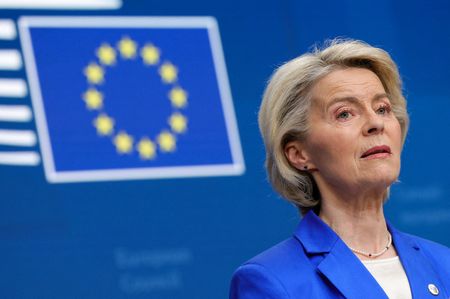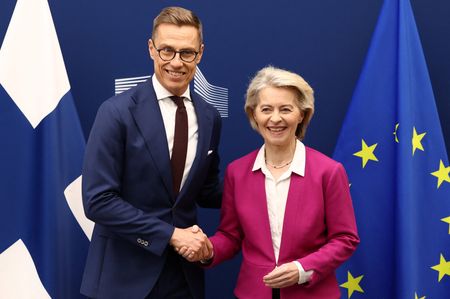LONDON (Reuters) -Calm returned to British markets on Monday after the previous week’s sharp swings, with the pound a touch firmer on the euro and steady on the dollar, trading well above recent lows.
UK markets were roiled on Friday by reports Finance Minister Rachel Reeves has no plans to raise income tax rates in the budget, alarming investors who had been anticipating an increase to help fill an expected fiscal shortfall.
The drama weighed on British government bonds, and dragged on the pound, which hit its weakest on the euro since early 2023.
Things were less dramatic on Monday morning, however, with British government bond yields lower, and outperforming European peers.
The pound strengthened on the euro, which was down 0.1% at 88.1 pence having traded as high as 88.64 pence on Friday.
Versus the dollar, sterling was effectively flat at $1.3166. In a sign of the calmer mood, its high and lows for the day were inside both Friday and Thursday’s ranges.
But the calm could be short-lived because of politics and upcoming economic data.
“Whether sterling can continue to fall against the euro at its recent pace is a moot point, but over time it looks distinctly vulnerable,” said Kit Juckes, chief FX strategist at Societe Generale.
The euro has gained on the pound for the past four weeks in succession.
Regardless of politics there is also economic data due this week, most notably consumer inflation due Wednesday.
“If we get a softish print in CPI, it looks like that will open the door to a December rate cut,” said Juckes.
“The market thinks that’s the more likely outcome, it probably thinks its a shoe in if we get that outcome.”
The Bank of England held rates steady at its meeting this month, but in a close vote with four of its rate-setting monetary policy committee voting to cut rates by 25 basis points.
At present, markets see roughly a three in four chance of such a cut at the BoE’s December meeting.
(Reporting by Alun John, editing by Ed Osmond)










